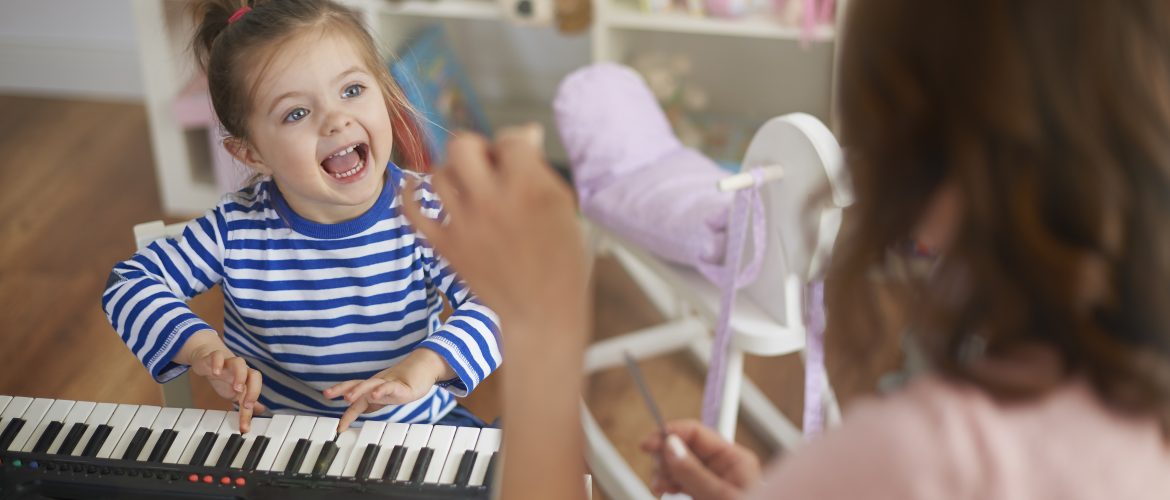Singing to Your Children Can Help Their Speech and Language Development
- January 16, 2020
- Posted by: Kerry Belgrove
- Category: Featured , Newborns , School-going Children , Speech & Language Development , Toddlers & Preschoolers ,

No one can deny the power of music. It stirs emotions within us. It can soothe and calm; it can be exciting and stimulating, and makes us want to dance. Moving to a rhythm, dancing, beating a drum, performing actions and singing the words of familiar songs are fun and engaging ways to stimulate your child’s social, cognitive and communication development.
In many ways, language is a kind of song. Every parent will know the gurgles, screeches and funny sounds made by their baby early on. This vocal play sounds a lot like singing, and there are positive interactions between the development of language, pitch sensitivity and singing. The study of language in relationship to music perception shows strong relationships between musical perception and processing with language. Research also indicates that language processors in our brains help us process harmony in musical relationships.
Incorporating music and songs in your interaction with your child offers opportunities for repetitive practise of words and sentences, as well as the practise of varied and exaggerated intonation patterns, simple sound effects, and early developing sounds. Many of the songs we sing to our children rhyme. Rhyme discrimination and production are important skills that are precursors to reading success. Nursery rhymes are fun and engaging for young children and expose your child to new words that they do not hear in everyday language. They also provide a bonding experience with your child. Besides their emotional benefits, music and singing promote social interaction. Music can transform a quiet and withdrawn child into an active verbal partner. Children are particularly responsive when the music comes directly from the parent, as opposed to recorded music, and encourages the development of reciprocal communication.
Singing songs is an activity associated with lower communication pressure. The reduced rate during songs can help your child achieve the placement and configuration of the tongue and lips for the correct production of sounds and words. Singing also aids auditory memory which incorporates skills for hearing, processing, retaining and recalling information presented verbally. These skills are imperative for academic success. It has been said that music “tones” the brain for auditory fitness.
Rhymes and songs also provide great building blocks for creative dramatics. Children love to re-enact songs, dramatising the actions of the characters with their hands, fingers or whole bodies. Songs can be turned into plays and puppet shows, allowing your child to further practise pitch, volume and voice inflection.

Nursery rhymes and songs are one of our most transportable forms of play. They can be used anywhere at any time. Sing something that encourages your child to participate with you. Be face to face so that your child can learn your facial expressions, actions and words. Once your child knows a song, pause and wait during key moments in the song, allowing him/her to complete it. Children love repetition. Don’t be afraid to sing a song over and over again. You can also substitute a silly word to catch your child’s attention. For example, you could sing, “Twinkle, twinkle, little shoe…” You can even have fun with your child creating your own songs using meaningful and useful words that your child understands. Don’t forget to add movement and actions!
Offer opportunities that allow lyrics to help your children speak the words they fail to say. After all, in the words of Rachel Arnston, “Every moment is a note, every situation is a song, and every person is a player.”
You may also be interested in reading why it’s important to read to your children.

Like!! I blog frequently and I really thank you for your content. The article has truly peaked my interest.